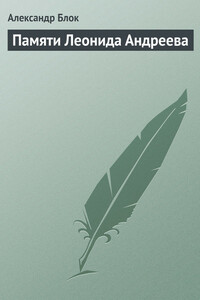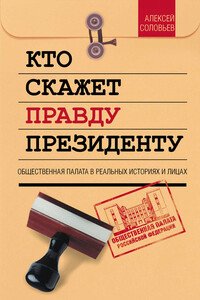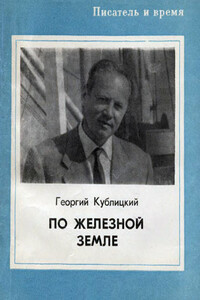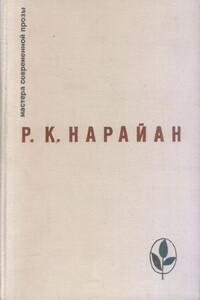День, когда рухнул мир - [15]
I opened the gate of the fence and stepped onto the green, grassy carpet. I fanned out the flowers on the dark granite at the foot of the tall gravestone, out of which my father’s face gazed.
„Greetings, Father.“
„Greetings, my son, ainalain, at last you have come. Make yourself comfortable.“
„I dream about you, Father.“ „Does that trouble you?“
„No, it brings me joy, Dad. Darkhan and I visited Kant’s grave and we thought of you. Why are you silent, Father?“ „You say that you thought of me?“
„Yes, do you remember you told Darkhan about Konigsberg, eleven years ago?“
„Son, let my grandson know that I loved him more than my own life.“
„He came here to pay his respects to you before he started his military service.“
„I remember it, son. We, the dead, remember all.“
And still I could not rid myself of the thought that not even a single Soviet paper had recorded this event of global importance. Twenty-five years ago, people from one hundred countries had for the first time cut short the nuclear arms race in the atmosphere, in the cosmos arid under water and we, a country which calls itself the most humane in the world, is silent about this victory. Perhaps we fear something? Nothing was clear to me and my head was spinning.
Arid then I heard my father’s voice again. „Don’t be so upset, son. This is simply absent-mindedness. Or perhaps some coordinator of world events was sacked in keeping with the cuts in the state budget! I’m joking, but of course you’re right. The whole world should have commemorated this day.“
„It’s just so deplorable that no one remembered, Father! Besides, over the last twenty-five years people have demonstrated that they can trust each other. I think we should bring everyone together again – either in Nevada or in Semipalatinsk, to sign another agreement and once and for all to prohibit nuclear explosions – but this time underground ones.“
„How long will you stay here in your homeland?“
„Not for long. I’m going to Genghiztau tomorrow. I’ll pay my respects to the graves which are not being looked after. Farewell, Father!“
„Goodbye, son!“
Next morning I reached the mountains. I had not been there for thirty-five years. The gloomy, grey rocks compelled me to strain my memory in my futile efforts to restore the images of the past which kept slipping away. We rode with my friend. We found my grandparents’ graves but no matter how we tried, we could not locate where little Kenje had been buried.
The night was drawing in and we had to hurry to escape the captivity of the dark mountainous ravines. It was long after midnight when we descended into the valley which lay at the foothills of the Genghiztau where there was a lonely shepherd’s yurta where my friend’s younger sister and her husband lived.
They were expecting us. The table was set. The samovar hummed and the meat was cooking in a cauldron. We were exhausted, worn out after the day’s riding and all we wanted to do was to lie down and close our eyes. However, we were obliged to observe the customs of the steppe and so we tried to behave like real dzhigits.
While on the road, my friend explained the terrible misfortune which had befallen his sister and her husband, who was a good-hearted, simple and hard-working fellow. Their first-born, who was by now almost five had been born without arms. They had another two children who did not live long and died of leucosis. His sister had a fourth child who is also disabled – a freak of nature – the crown on his skull would not harden.
„When I think about her, my heart bleeds,“ he said finally. „After the last birth she went grey, she wanted to commit suicide, but her husband saved her. He’s a reliable fellow; bears all this misfortune bravely. I love him for his courageous faith and because he has not become embittered. Do yon know what I mean…?“
„Yes,“ I replied. „But perhaps we had better not bother them so late?“
„What are you saying? No, they’re always glad to have company.“
Thank God he did not grasp the underlying motive behind my question. I felt ashamed but I did not want to look into the face of yet one more tragedy amidst the untold number which had been our nation’s lot. I had had my fill of sorrow in my native land. In Djambul, I was shown the victims of the chemical industry – children with two heads, three arms and legs. To this day, I still remember those inhuman, disfigured faces, their mothers’ desperation and their fathers’ silent shame. I remembered the people from the Aral who die like flies from cancer of the oesophagus, the misfortune of the coal-producing Karaganda, of Mangishlak Peninsula with its oil pipes of Guryev, Baikonur, and of the copper and lead production of East Kazakhstan. These days one is hardly able to find any place where one can breathe clean air, drink clean water, walk through one’s native land without the fear of radiation, poisoning, infection.
Our excellent demographer showed me an article which cited the Kazakh population in 1913, 1932, 1938 and 1946. Millions died in the war, millions were killed, shot and died from hunger and devastation. Have any statistics included the losses caused by atomic bomb testing, by arbitrary industrialization on Kazakh territory, masterminded by bureaucrats? Not to mention the gradual disappearance and impoverishment– of the Kazakh language! This is yet another of the multitude of tragedies about which both phrase-mongers and campaigners, to this day, remain silent.

«Почему я собираюсь записать сейчас свои воспоминания о покойном Леониде Николаевиче Андрееве? Есть ли у меня такие воспоминания, которые стоило бы сообщать?Работали ли мы вместе с ним над чем-нибудь? – Никогда. Часто мы встречались? – Нет, очень редко. Были у нас значительные разговоры? – Был один, но этот разговор очень мало касался обоих нас и имел окончание трагикомическое, а пожалуй, и просто водевильное, так что о нем не хочется вспоминать…».

Деятельность «общественников» широко освещается прессой, но о многих фактах, скрытых от глаз широких кругов или оставшихся в тени, рассказывается впервые. Например, за что Леонид Рошаль объявил войну Минздраву или как игорная мафия угрожала Карену Шахназарову и Александру Калягину? Зачем Николай Сванидзе, рискуя жизнью, вел переговоры с разъяренными омоновцами и как российские наблюдатели повлияли на выборы Президента Украины?Новое развитие в книге получили такие громкие дела, как конфликт в Южном Бутове, трагедия рядового Андрея Сычева, движение в защиту алтайского водителя Олега Щербинского и другие.

Курская магнитная аномалия — величайший железорудный бассейн планеты. Заинтересованное внимание читателей привлекают и по-своему драматическая история КМА, и бурный размах строительства гигантского промышленного комплекса в сердце Российской Федерации.Писатель Георгий Кублицкий рассказывает о многих сторонах жизни и быта горняцких городов, о гигантских карьерах, где работают машины, рожденные научно-технической революцией, о делах и героях рудного бассейна.

Свободные раздумья на избранную тему, сатирические гротески, лирические зарисовки — эссе Нарайана широко разнообразят каноны жанра. Почти во всех эссе проявляется характерная черта сатирического дарования писателя — остро подмечая несообразности и пороки нашего времени, он умеет легким смещением акцентов и утрировкой доводить их до полного абсурда.

В книге рассказывается история главного героя, который сталкивается с различными проблемами и препятствиями на протяжении всего своего путешествия. По пути он встречает множество второстепенных персонажей, которые играют важные роли в истории. Благодаря опыту главного героя книга исследует такие темы, как любовь, потеря, надежда и стойкость. По мере того, как главный герой преодолевает свои трудности, он усваивает ценные уроки жизни и растет как личность.

В книге рассказывается история главного героя, который сталкивается с различными проблемами и препятствиями на протяжении всего своего путешествия. По пути он встречает множество второстепенных персонажей, которые играют важные роли в истории. Благодаря опыту главного героя книга исследует такие темы, как любовь, потеря, надежда и стойкость. По мере того, как главный герой преодолевает свои трудности, он усваивает ценные уроки жизни и растет как личность.